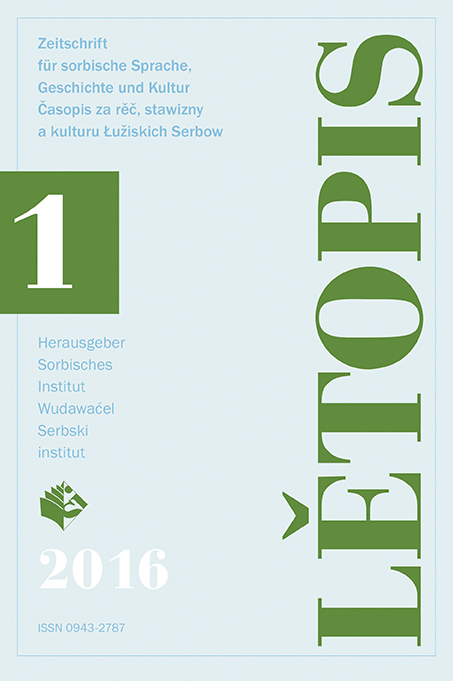Das kirchliche Leben der evangelischen Sorben in Schlesien während der Weimarer Republik.
The Church Life of Lutheran Sorbs in Silesia during the Weimar Republic.
From Reports of Church Inspections in the Parishes of Schleife and Nochten-Tz
Author(s): Edmund PechSubject(s): History, Theology and Religion, Religion and science
Published by: Domowina-Verlag GmbH / Ludowe nakładnistwo Domowina
Keywords: Kirche; evangelische Sorben; Schlesien; Weimarer Republik; Kirchenvisitation; Gemeinde Schleife; Nochten-Tzschelln; church; Protestants; Sorbian language; the Weimar Republic; visitations; Silesia;
Summary/Abstract: During the Imperial period the Sorbian language was exposed to extensive repressive measures in the ecclesiastical province of Silesia. Together with other measures, the ban on confirmation instruction in Sorbian by the Lutheran Consistory in Breslau was a contributory factor. It was possible for this restriction to be lifted after the First World War. In addition, the pastors and cantors received supplementary payments from 1920 onwards, called a “Wend allowance”, to compensate them for the additional linguistic burden. At the beginning of the 1920s there were 17 parishes within the Lutheran Consistory in Silesia, in which sermons were still delivered in Sorbian. However, the increasing lack of Sorbian candidates for ecclesiastical office presented a large problem. The number of new Sorbian pastors went down significantly despite financial subsidies from the Lutheran Consistory in Breslau for Sorbian language courses and grants for theological students. At the end of the 1920s and the beginning of the 1930s a large number of Sorbian Lutheran pastors in Prussian Upper Lusatia were in line for retirement, without it being possible to find suitable new Sorbian candidates for the positions, which became vacant.
- Issue Year: 2016
- Issue No: 1
- Page Range: 118-133
- Page Count: 16
- Language: German
- Content File-PDF

